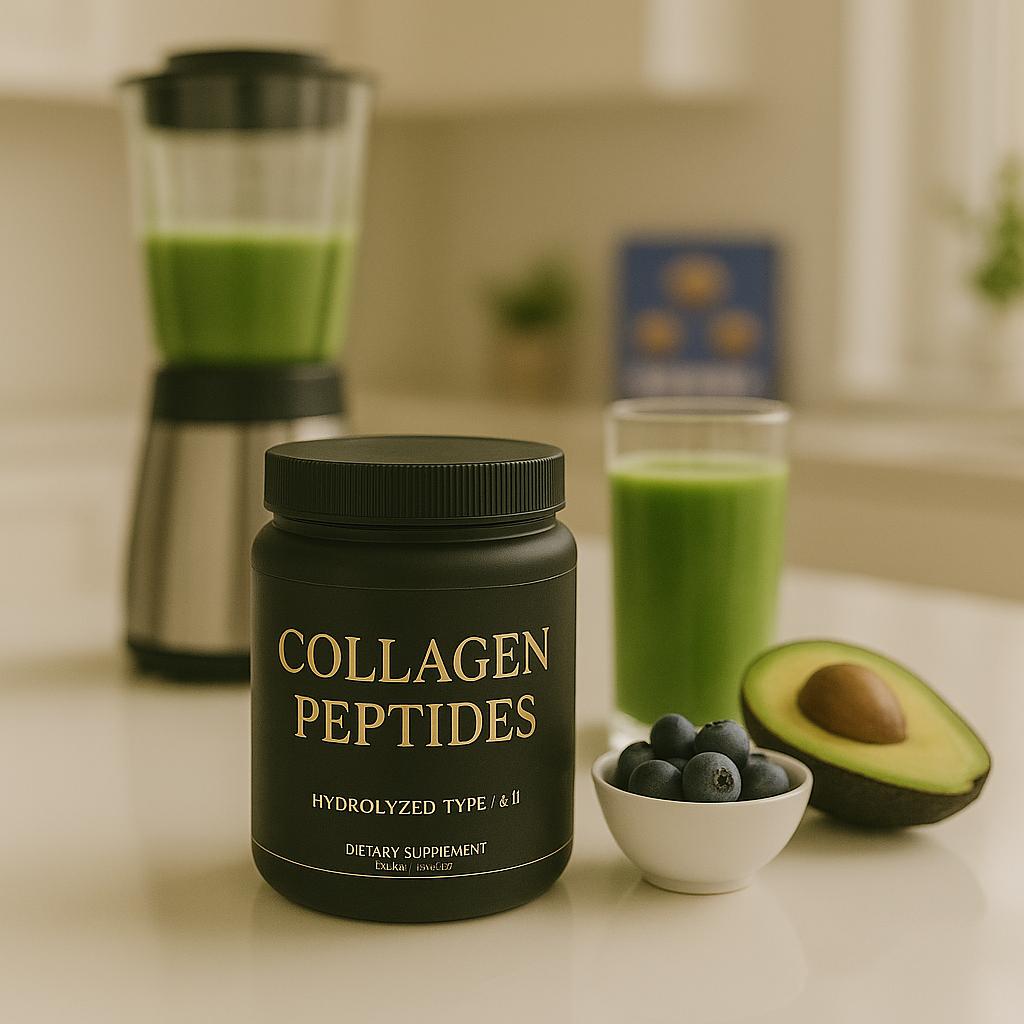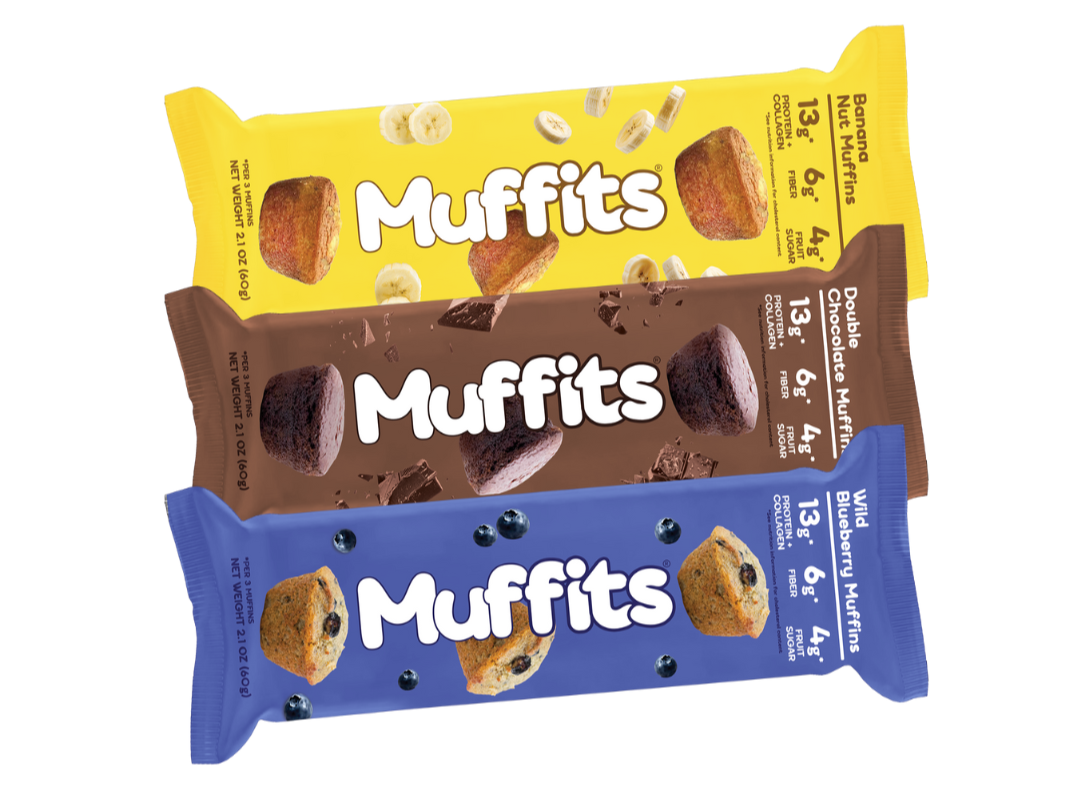
1. What Is Collagen Peptide?
Collagen peptides are the broken-down, hydrolyzed form of collagen making them easier for your body to absorb and utilize. Think of collagen as the body’s natural scaffolding. It helps keep your skin firm, your bones strong, and your joints pain-free. If you're looking to boost your daily collagen intake, check out our premium designed for better absorption and visible results. You can also explore more info in our main page
2. Why You’re Probably Deficient (And Don’t Know It)
After age 25, collagen production declines by ~1% per year. Add UV exposure, pollution, stress, sugar, and boom you’ve got aging skin, sore joints, brittle nails.
3. Skin Health: Collagen’s Frontline Function
Studies show daily intake of 2.5–10g collagen peptides leads to:
28% increase in skin hydration
Improved elasticity
Visible reduction in wrinkles over 12 weeks
4. Joint Health: Healing at a Deeper Level
A 2018 meta-analysis (41 studies!) confirmed collagen reduces joint stiffness, especially in osteoarthritis patients.
Supports cartilage regeneration
Reduces pain markers like CRP
Improves range of motion
5. Bone Density: The Silent Protector
One study showed postmenopausal women gained up to 7% bone density in the femur after 12 months of collagen peptides.
Enhances osteoblast activity
Prevents osteoporosis
Promotes calcium-binding proteins
6. Hair & Nails: Yes, They Matter Too
Thin hair? Split nails? Collagen peptides may help because:
Rich in amino acids like proline, arginine
Stimulates keratin production
Reduces brittle nail incidents by 42%
7. Muscle Support & Athletic Recovery
Collagen contains glycine essential for creatine synthesis and improves post-workout muscle repair.
One RCT showed:
12 weeks + resistance training + collagen = higher fat-free mass
Reduced DOMS (delayed onset muscle soreness)
8. Gut Barrier & Inflammation: Underrated Benefits
Collagen may reinforce the intestinal lining and reduce permeability (aka leaky gut).
Supports tight junction proteins
Reduces inflammation markers like IL-6, TNF-alpha
9. Science-Backed Data You Can’t Ignore
✅ 2019 – Journal of Dermatology: Collagen improved skin hydration in 70% of subjects
✅ 2020 – Journal of Nutrients: 15% increase in bone mass density with 5g collagen/day
✅ 2021 – NIH Meta-analysis: Collagen helps in reducing joint pain significantly
10. Types of Collagen: I, II, III Explained
|
Type |
Found In |
Benefit |
|
I |
Skin, bones |
Elasticity, strength |
|
II |
Cartilage |
Joint support |
|
III |
Arteries, organs |
Vascular health |
Tip: Type I + III blend is best for aesthetics. Type II for arthritis.
11. Hydrolyzed vs Non-Hydrolyzed: Which One Wins?
Hydrolyzed collagen peptides are pre-digested, meaning your body absorbs them 30% faster.
Better bioavailability
No bloating
Dissolves in water instantly
12. How to Use It: Dosing + Timing That Actually Works
Dosage: 5g–10g daily
Best time: Morning (with coffee), or post-workout
Form: Powder > Capsule > Liquid
13. Side Effects (Yes, Let’s Talk Real Talk)
Most users report no side effects, but:
Some experience GI discomfort
Fish or egg allergies can trigger reactions
Always read ingredient labels
Trust element: Add “Reviewed by a certified nutritionist” or similar.
14. Why Quality > Hype
Watch out for:
❌ Artificial sweeteners
❌ Hidden sugars
❌ Non-GMP certified factories
✅ Look for 3rd-party tested, sustainably sourced collagen from marine, grass-fed bovine, or free-range chicken.
15. Final Verdict + Action Plan
If you’re aiming to:
✅ Age gracefully
✅ Improve skin, joints, and bones
✅ Support recovery
✅ Prevent long-term degeneration
…collagen peptides are no longer optional. They’re essential.
🧠 Smart move: Cluster this blog with others like:
Best Time to Take Collagen”
Collagen for Hair Growth”
Marine vs Bovine Collagen”
Have questions or need more information about our premium collagen peptides? Contact Us today
FAQs for Collagen Peptides
1. What are collagen peptides?
Collagen peptides are hydrolyzed forms of collagen that are easier for your body to absorb, helping improve skin, joints, bones, and more.
2. Why do we lose collagen as we age?
Collagen production drops by about 1% per year after age 25 due to aging, sun exposure, stress, and diet—leading to visible aging and joint issues.
3. Do collagen peptides really improve skin?
Yes. Studies show daily intake of 2.5–10g collagen peptides increases skin hydration, elasticity, and reduces wrinkles over 12 weeks.
4. Can collagen help with joint pain or arthritis?
Absolutely. Research shows collagen supplements reduce joint pain, support cartilage, and improve mobility, especially in osteoarthritis patients.
5. How does collagen affect bone density?
Collagen enhances bone formation. One study found postmenopausal women gained 7% femur bone density after taking collagen peptides for 12 months.
6. Is collagen good for hair and nails?
Yes. Collagen supports keratin production, strengthens brittle nails, and helps reduce hair thinning by supplying amino acids like proline and arginine.
7. Can collagen support muscle growth and workout recovery?
Definitely. Collagen improves post-workout recovery and increases fat-free muscle mass when combined with resistance training.
8. What are the benefits of collagen for gut health?
Collagen supports the gut lining, reduces intestinal permeability (leaky gut), and helps lower inflammation markers like IL-6 and TNF-alpha.
9. What types of collagen should I take?
Type I and III are best for skin, hair, and nails, while Type II is ideal for joint and cartilage support.
10. What’s the difference between hydrolyzed and regular collagen?
Hydrolyzed collagen is pre-digested, making it more bioavailable and easier to absorb without causing bloating.
11. How much collagen should I take daily?
A daily dose of 5g–10g is ideal. Take it in the morning with coffee or post-workout for best absorption.
12. Are there any side effects to collagen peptides?
Most users tolerate collagen well, but some may experience mild GI discomfort or allergic reactions to fish or eggs.
13. What should I look for in a quality collagen supplement?
Choose sustainably sourced, 3rd-party tested collagen with no artificial sweeteners, from marine, grass-fed, or free-range sources.
14. When is the best time to take collagen?
Morning with coffee or post-workout are the best times to take collagen for optimal results and absorption.
15. Why should I consider collagen peptides essential?
Because they support aging, recovery, and long-term health for skin, joints, bones, and the gut—all backed by strong scientific research.














